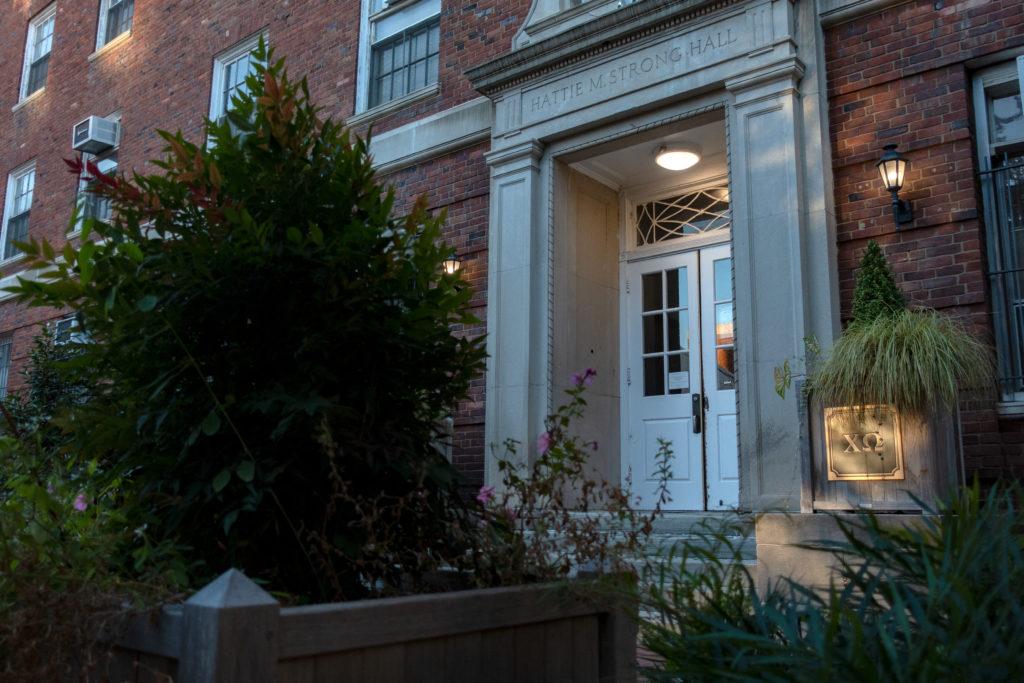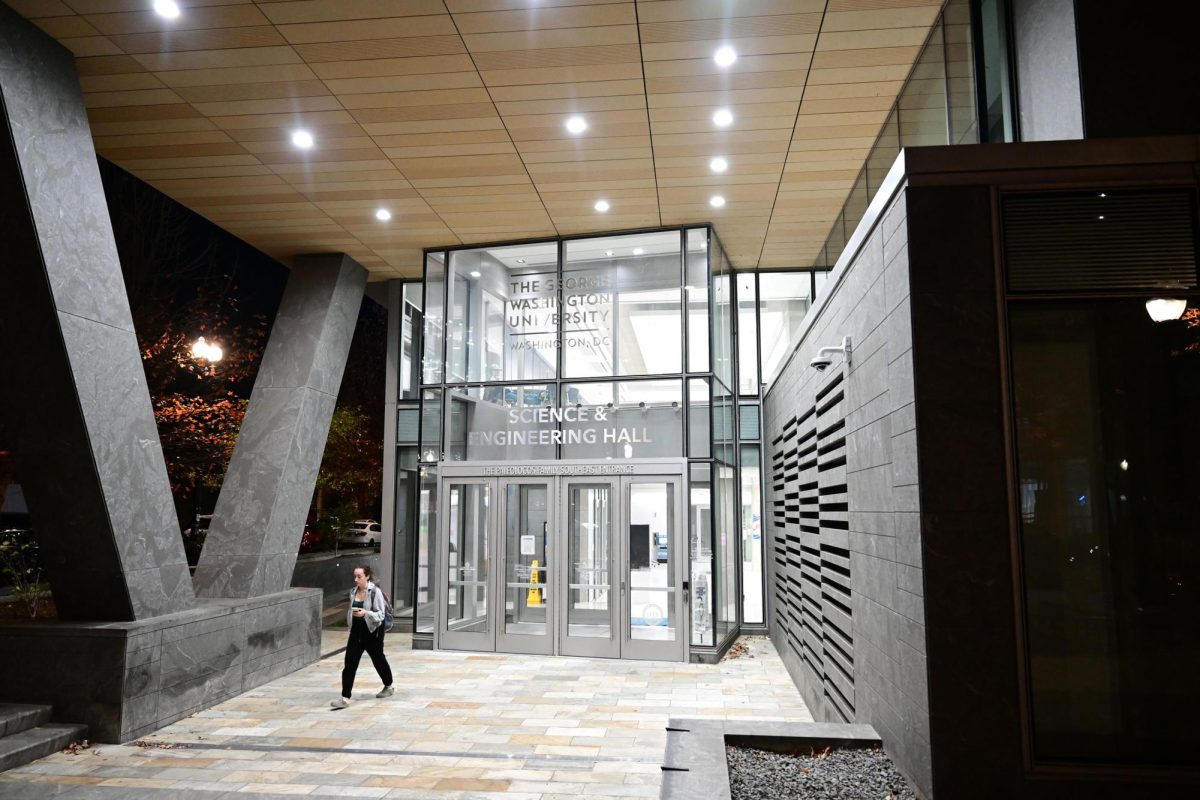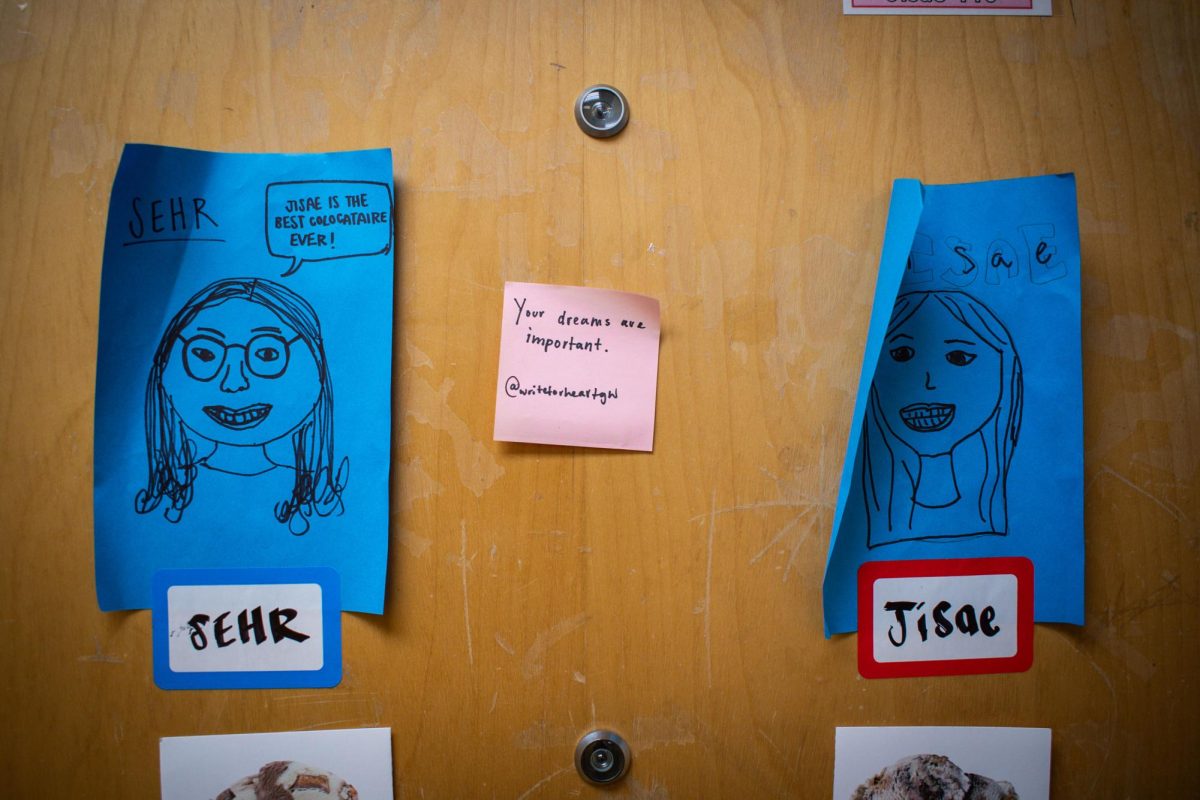The number of students who accepted bids from Interfraternity Council chapters increased after recruitment totals dipped during the virtual academic year.
Brian Joyce, the director of fraternity and sorority life, said 121 students joined an IFC chapter this fall, marking an uptick from about 70 students this spring and passing 120 who joined before the pandemic in spring 2019. Fraternity leaders said the expansion of Greek life fall rush to include freshmen helped drive the surge in recruitment, as chapters look to rebound with students back on campus and programming back in person following a virtual shift during the pandemic.
Officials temporarily lifted a rule requiring students to complete 12 credits before rushing this fall to help more students find community on campus. Joyce said Sigma Chi added 28 members, Beta Theta Pi added 27 members, Kappa Sigma added 18 members, Delta Tau Delta added 14 members, Tau Kappa Epsilon and Zeta Beta Tau each added 11 members, Alpha Sigma Phi added nine members and Sigma Alpha Epsilon added three members during rush.
Jonathan Shemano, the president of the Interfraternity Council, said fall rush was necessary for freshmen in light of the social isolation during the pandemic, when chapters conducted recruitment and philanthropy efforts virtually as engagement levels dropped. He said officials should keep fall rush open to freshmen because it fosters community earlier among fraternity members.
“We felt that it was time to make the change, both providing chapters an opportunity to replenish their numbers earlier than usual as well as offering freshmen who are starving for social interaction and community a chance to join Greek Life right out of the gate,” he said in an email.
Shemano said he worked closely with the IFC’s vice presidents of recruitment, public relations and the council at-large to oversee the rush process and enforce rules for recruitment. He helped market events like Meet the Greeks, an event hosted at the start of the fall semester where potential new members can meet the social fraternities and sororities, ensure fairness among chapters and communicate with chapter e-board members throughout recruitment.
“We used various techniques, including social media advertisement, word of mouth from members to potential new members, dorm room advertisement and a Meet the Greeks tabling event,” he said. “The most important tool we had available to us was the efforts of individual chapters to advertise and network themselves.”
Sam Akrongold, the president of Sigma Chi, said his chapter advertised for recruitment this year through their Instagram account to post recruitment videos and schedules. He said allowing freshmen to rush in the fall helps them build community on campus earlier in the academic than in previous years.
“I am excited about the changed policy because it gives freshmen an opportunity to become involved in Greek life earlier in their college careers and an extra semester to build relationships within the organization they ultimately select,” he said.
Akrongold said about 102 students filled out the fraternity’s information form at Meet the Greeks. He said hosting in-person events helps the fraternity develop a personal connection with potential members, leading to increased engagement from students.
“The main challenge of virtual recruitment was pretty overt,” he said in an email. “In a virtual environment, conversations are forced, and it is difficult to really get a feel of someone. Being back on campus and in person this semester is a total game changer because brothers and PNMS can interact more naturally and even socialize in settings beyond rush, in classes or over lunch.”
Krupal Sharma, the president of Beta Theta Pi, said recruitment levels increased after recruitment turned to in-person programming this fall after it was held online last year due to the COVID-19 pandemic.
“It’s definitely a lot different in an online setting,” he said, “It was very difficult for a lot of people just to learn how to use Zoom and be able to facilitate those sorts of conversations in the online setting,” he said.
He said some challenges to in-person recruitment included adhering COVID-19 safety protocols and hosting events all in the first four weeks back on campus.
“In person, it’s taking some time to get used to, especially because it’s a lot of these kids’ first time to campus, and they’re rushing four weeks in, and COVID-19 guidelines have been up in the air, depending on what part of the country they come from,” he said.








